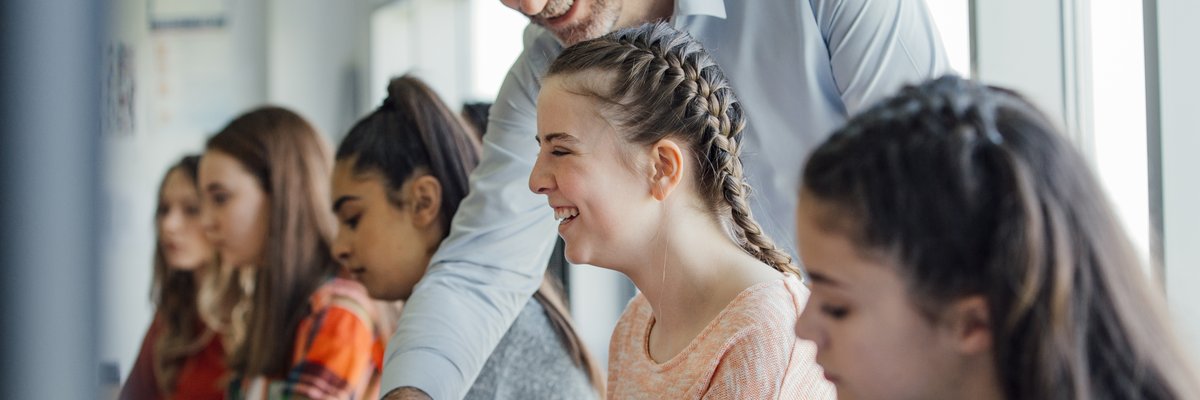- AI & ML
'Cognitive Offloading', 'Lazy Brain Syndrome' and 'Lazy Thinking' - unintended consequences in the age of AI

👉 How to use: Select your use case above. The generated prompt will instruct the AI to create a strategy that links back to this research on Cognitive Offloading.
Generative AI and LLMs are everywhere in 2025 classrooms, making teaching and learning faster than ever. But as research in the Science of Learning shows, letting technology do too much of the thinking for us—“cognitive offloading”—weakens the very skills education aims to build. And contrary to popular belief, these risks are not shared equally: less experienced and lower-ability learners are particularly susceptible to the negative effects of AI-driven offloading.
Cognitive Offloading and the Science of Learning
Generative AI and LLMs are everywhere in 2025 classrooms, making teaching and learning faster than ever. But what might be the unintended consequences?
Cognitive offloading occurs when learners let tools handle mental tasks they could perform themselves, be it memory, problem-solving, or critical thinking. Studies using cognitive engagement scales and neurobiological research show that regular offloading leads to lower mental effort, weaker attention, and reduced deep processing. Experiments have demonstrated that when generative AI provides answers—whether for essays, homework, or lesson planning—users show lower long-term retention and diminished strategic thinking.
Foundational models in education science explain why: deep learning requires “germane cognitive activity”—effort spent making connections and grappling with difficult material. Offloading this work to AI not only stalls the “wiring together” of new knowledge (Hebbian learning) but also undermines self-regulation, persistence, and the development of independent intellectual agency
Unequal Impact: Novices and Struggling Learners Suffer Most
The risks are greatest for beginners and lower-ability learners. Science shows that these students need more time actively wrestling with ambiguity, feedback, and problem-solving to build enduring cognitive skills. When they rely on AI too early or too much, they skip the struggle needed to form deep understanding, often developing “learned helplessness” and dependency. They may even lose confidence in their own abilities, feeling anxious or unable to contribute when AI is absent, further disconnecting from collaborative and social learning experiences.
Experienced learners are better equipped to filter and critique AI output, using it as a support—not a substitute—for their own expertise. But for novices, the shortcut undermines critical growth, self-monitoring, and resilience—the very attributes required for successful lifelong learning.
Three Risk Zones—and How RM Compare Provides a Solution
Planning Lessons
- Generative AI can generate lesson plans instantly, but if teachers outsource pedagogical thinking to AI, they lose opportunities to create tailored, engaging lessons. Less experienced teachers are especially at risk of passively adopting generic plans or missing key learning points for their students.
- RM Compare requires teachers to select exemplars and craft criteria for high-quality work, prompting personal reflection and deeper engagement with subject content—reinvigorating the foundations of good teaching through active decision-making.
Learners Completing Work
- Students can now produce essays or solve maths problems by prompting an LLM. Research shows that lower-ability learners who offload too much cognitive work show weaker retention, poorer problem-solving, and reduced motivation.
- RM Compare gets learners to compare, judge, and justify real peer work—forcing engagement, analysis, and reflection over passive answer consumption. This embeds active metacognition at the core of every task, helping those most at risk build essential learning skills.
Assessing Work
- Automated AI marking can free time but erodes nuanced judgment and personal reflection. Evidence shows assessors—especially those less experienced—may become surface-level evaluators if they rely too much on AI feedback.
- By requiring teachers and students to compare work and discuss judgments, RM Compare creates space for dialogue, calibration, and deliberate reasoning—fostering professional growth and deeper feedback for learners
Science-Driven Solutions: Reclaiming Deep Learning
The message from cognitive science is clear: cognitive offloading is a genuine threat to deep learning and is most dangerous for those still building their foundations. RM Compare protects all learners by demanding active engagement, judgment, and reflection—at every stage of the learning journey.
If we want technology to support, not sabotage, educational progress, it’s time to design for thinking, not just efficiency. RM Compare offers a pathway to keep the cognitive struggle—and the joy of learning—alive for everyone, especially those who need it most.
References
- https://nickpotkalitsky.substack.com/p/looking-for-the-next-world-possible
- https://www.psychologytoday.com/gb/blog/the-digital-self/202501/the-shadow-of-cognitive-laziness-in-the-brilliance-of-llms
- https://arxiv.org/pdf/2507.00181
- https://www.timeshighereducation.com/campus/ai-era-how-do-we-battle-cognitive-laziness-students
- https://pmc.ncbi.nlm.nih.gov/articles/PMC8358584/
Related posts
- Where's the beef? Learning, Performance, and the Slow AI Revolution
- Why ‘Innovation for Efficiency’ Isn’t Enough: The Hidden Value of Slowing Down
- Comparative Judgement: Elevating Human Input in the Age of AI
- All AI Posts
